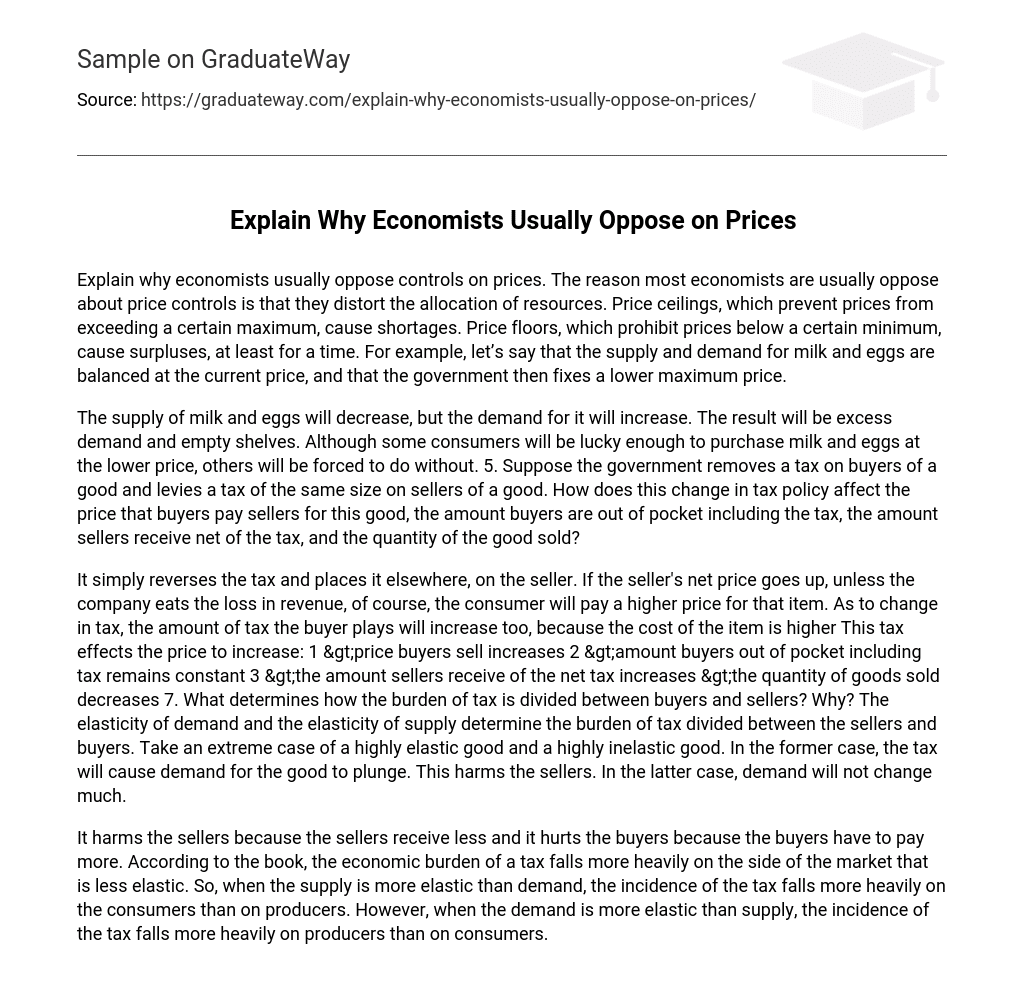Explain why economists usually oppose controls on prices. The reason most economists are usually oppose about price controls is that they distort the allocation of resources. Price ceilings, which prevent prices from exceeding a certain maximum, cause shortages. Price floors, which prohibit prices below a certain minimum, cause surpluses, at least for a time. For example, let’s say that the supply and demand for milk and eggs are balanced at the current price, and that the government then fixes a lower maximum price.
The supply of milk and eggs will decrease, but the demand for it will increase. The result will be excess demand and empty shelves. Although some consumers will be lucky enough to purchase milk and eggs at the lower price, others will be forced to do without. 5. Suppose the government removes a tax on buyers of a good and levies a tax of the same size on sellers of a good. How does this change in tax policy affect the price that buyers pay sellers for this good, the amount buyers are out of pocket including the tax, the amount sellers receive net of the tax, and the quantity of the good sold?
It simply reverses the tax and places it elsewhere, on the seller. If the seller’s net price goes up, unless the company eats the loss in revenue, of course, the consumer will pay a higher price for that item. As to change in tax, the amount of tax the buyer plays will increase too, because the cost of the item is higher This tax effects the price to increase: 1 >price buyers sell increases 2 >amount buyers out of pocket including tax remains constant 3 >the amount sellers receive of the net tax increases >the quantity of goods sold decreases 7. What determines how the burden of tax is divided between buyers and sellers? Why? The elasticity of demand and the elasticity of supply determine the burden of tax divided between the sellers and buyers. Take an extreme case of a highly elastic good and a highly inelastic good. In the former case, the tax will cause demand for the good to plunge. This harms the sellers. In the latter case, demand will not change much.
It harms the sellers because the sellers receive less and it hurts the buyers because the buyers have to pay more. According to the book, the economic burden of a tax falls more heavily on the side of the market that is less elastic. So, when the supply is more elastic than demand, the incidence of the tax falls more heavily on the consumers than on producers. However, when the demand is more elastic than supply, the incidence of the tax falls more heavily on producers than on consumers.





